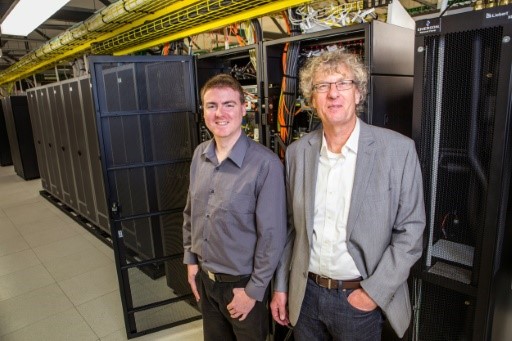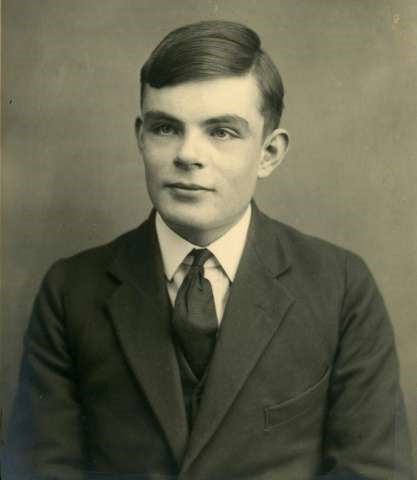
British genius Alan Turing may be primarily remembered as the father of computer science and famed cryptographer that broke the Nazi Enigma code during World War II, but few recognize him as the pioneer of electronic music. Adding musical innovator to his long list of accreditations, Turing made history in 1951 by becoming the first person to generate music using a computer. 65 years later, researchers from the University of Canterbury (UC) in Christchurch have successfully restored the recordings — originally made on a 12-inch acetate disc — allowing us to hear a slice of history.

The three tracks created at the Computing Machine Laboratory in Manchester, England, using a room-sized contraption included the timeless proof of English patriotism, “God Save the King,” as well as “Baa Baa Black Sheep” and Glenn Miller’s “In the Mood.” When UC professor Jack Copeland and composer Jason Long recently examined the only known copy of the recording, they found that much of the audio contained distortions. “The frequencies in the recording were not accurate. The recording gave at best only a rough impression of how the computer sounded,” explained Long in an AFP article.
Restoring the aural artifact required that the team filter out the extraneous background noise, adjust the speed of the audio, and compensate for an incessant “wobble” heard in the background. The result drastically differs from the analog instruments of the time, bearing a characteristically rigid machine-like sound. The fully-restored track can be heard here , along with the amused reactions of the first-time listeners spotting a glitch during the Glenn Miller track.
An interesting thing to note is that while Turing programmed the first musical notes into an analog computer, he had no interest in arranging them together into tunes. That work was carried out a few years later by Christopher Strachey, a school teacher who went on to become a famed computer scientist in his right. Unaware that his recording would eventually herald an entirely new form of music, Turing’s reticent reaction to hearing his machine play music was merely “good show.”
Source: Gizmodo via CTVnews.ca
Advertisement
Learn more about Electronic Products Magazine





